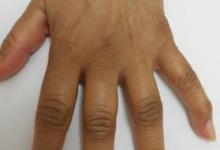Rebuttals Save

Since the COVID vaccine rollout, more people have been eligible to receive the vaccine. However, not everyone chooses to get one. I have heard many reasons (aka excuses) from my patients who are vaccine hesitant.
Most come from people who are highly intelligent, and claimed that they will receive the vaccine but not yet. While I am not trying to force people to get vaccinated, I wanted to hear their side of the story and also ask that they hear mine.
In this article, I want to address common vaccine concerns that have been posed and my rebuttals to help those facing the same issue.
“The vaccine was developed too quickly. I don’t trust it.”
Usually when I hear this, this concern is very easy to address. The mRNA vaccine technology has been under development since 1985; that is over 35 years of research. The reason for this technology was to create a more streamlined, efficacious vaccine; several different diseases were being targeted using the mRNA vaccine technology including flu, Ebola, CMV, and even cancer. There was a lot of interest in mRNA technology particularly when it came to the flu vaccine—at best, the traditional flu vaccine was 60% effective, but there were years where efficacy skirted 10-20%1.
It was hypothesized that mRNA vaccines would be more efficacious than traditional vaccines. With the looming threat from SARS-CoV-2, there was urgency to create a vaccine that would prevent more deaths; it was a race against time. Currently in the United States, over 534,000 died; this is more than those killed in World War II, Korea and Vietnam Wars combined. The 1918 Spanish flu killed 675,000 people in the United States; we are headed in that direction. So why was a vaccine rushed? So that more lives can be saved. The mRNA COVID vaccine demonstrated >95% efficacy in clinical trials; this is a chance to end the pandemic. Now that we have 3 efficacious vaccines. We won the lottery! Let’s cash in.
“I am worried about the safety profile of the vaccines.”
The news media had really highlighted adverse events seen with the COVID vaccines: anaphylaxis, Guillain Barre Syndrome (GBS), de novo autoimmune diseases. It is the job of the reporter to present unbiased information and to report stories that the public should know. I address this issue by letting patients know that they should view news media report like how doctors view medical literature. Doctors may raise an eyebrow at “case reports”, but we put more weight in “meta-analyses” and “randomized-controlled trials”; these are much more powerful resources to allow us to practice evidenced based medicine. While these “case reports” are interesting, they must be evaluated in the context of the denominator, meaning how many patients in general would develop these kinds of reactions anyways without vaccination and how is the rate different compared with other agents?
The most common concern was anaphylaxis. With the mRNA vaccines, anaphylaxis occurred in 2.5-11 cases per one million doses. In general, anaphylaxis occurs in 1 out of 10,000 people annually; the recent FDA review of anaphylaxis showed anaphylaxis rates for acetaminophen and ibuprofen: 0.52% of patients with adverse events to acetaminophen have anaphylaxis (5 out of 10,000), and 1.2% for ibuprofen 1.2% (1 out of 124)3. Yet, acetaminophen and ibuprofen are over the counter medicines. Knowing background rates of adverse events will help to put things into perspective; one allergist in our community proclaimed, “We can treat anaphylaxis, but we can’t always treat COVID19!” Other patients have worried about Guillain Barre Syndrome (GBS). The CDC estimated 1-2 cases GBS per 100,000; a few published studies noted that COVID19 itself can cause GBS, The Italian registry cited rates of GBS increased due to the virus. Northern Italy reported a 2.6 fold increase with 4.7 cases per 100,000 infections3. Only a handful of cases of GBS following millions of COVID vaccinations had been reported, much less than normally expected following any vaccination.
The final safety concern that patients worry about is that the vaccine might cause sterility; it is amazing how many times my 50–60-year-old patients express this concern. Really?!! You want to have another baby at this point in your life although your youngest is in college and you had complained to me throughout the years how much grief your kids caused you and how much they cost you? After making a mental note to talk to them about pregnancy planning, I informed them that during the Pfizer study, there were people who got pregnant after they received the vaccine. My concern is sterility with COVID19 infection, not the vaccine. The possibility of sterility due to the virus is being investigated. ACE2 receptors are found in testicular cells. Orchitis is a recognized complication from COVID19; testicular damage can be caused by direct viral invasion or from secondary immunological/inflammatory response4. It is being studied whether COVID19 can cause testicular damage and infertility in male patients. I think the men who were concerned with vaccine induced sterility were thinking about erectile dysfunction which can be multifactorial, including stress. I gave them my rebuttal, when you take away the stress and fear of getting COVID19, performance is enhanced. Most safety concerns patients have about the COVID vaccine can be addressed by looking up the stats, trusting large numbers and not relying on case reports.
“The vaccine will flare my disease.”
Many things can flare autoimmune diseases (e.g., sunlight, tobacco, infections). The most common reason for flares, though, is stopping medications. At the beginning of the pandemic, many patients avoided taking their medicines fearing the medicines will increase their risk for getting infected and dying from COVID19. They flared. Flares are a theoretical risk with the COVID vaccine as the vaccine is designed to activate the immune system to produce antibodies. Do we hesitate to vaccinate patients because they might flare? Absolutely not; we have recommended the flu vaccine, pneumonia vaccines, and shingles vaccine to all patients because the risk of contracting disease is so much worse than the risk of vaccination induced flares. We can treat flares!
“The vaccine is a tracking device. It will turn me into a zombie and control my thoughts and actions.”
Yes, this was an earnest concern expressed by a patient, but before this patient voiced it, he whispered, “Do you think the election was stolen?” Trying my hardest to hide my disbelief, I was relieved I was wearing a mask and face shield for more than one reason. I informed my patient that I am not going to bring politics into what I think is right for his health. It is my duty and under the Hippocratic oath that I do my best to keep him healthy and avoid harm. The vaccine is safe and efficacious. If someone wanted to track us, they are doing so with our cell phones and through web searches we conduct on the internet. Alexa and Siri are listening to our conversations regularly. To avoid being tracked, one would need to live “off the grid.” The vaccine would be a very inefficient way to track people; we have the census for that! I also introduced to him the idea that perhaps social media and whatever news platform he had been watching is already turning him into a zombie by controlling his thoughts to believe such information.
With research studies showing that people who have been vaccinated, have less risk for getting and transmitting COVID19, the CDC have relaxed guidelines. Vaccinated people can be around other vaccinated people without wearing a mask, even in enclosed areas. I visited my 89-year-old mom with my vaccinated siblings this past weekend for lunch inside her house. She was grinning from ear to ear.
My mom’s soup had never tasted this good!
References:
https://www.cdc.gov/flu/vaccines-work/past-seasons-estimates.html
https://doi.org/10.1016/j.jaip.2020.09.021
Brain. 2021 Mar 3;144(2):357-360. doi: 10.1093/brain/awaa444.
World J Urol. 2020 Apr 21: 1–2. doi: 10.1007/s00345-020-03208-w










If you are a health practitioner, you may Login/Register to comment.
Due to the nature of these comment forums, only health practitioners are allowed to comment at this time.